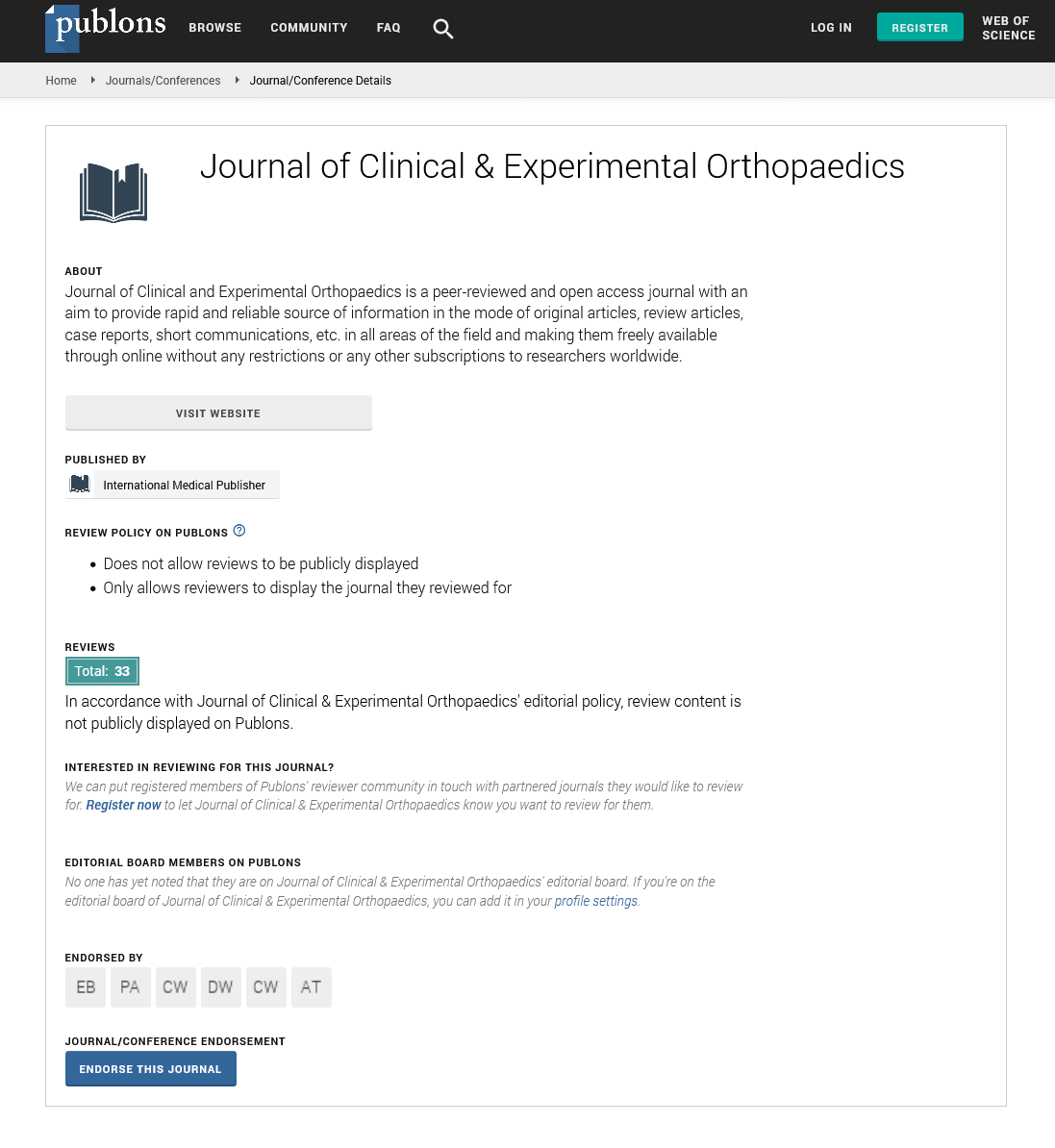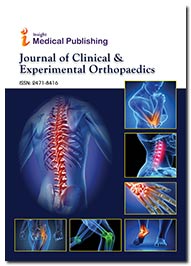Abstract
The Effect of a Clinical Pathway Strategy for Managing Care in Total Joint Replacement: The Impact on Perioperative Outcomes
Introduction: The development of clinical pathways, for a variety of surgical procedures, has made an impact on clinical practice. When combined with the electronic medical record, clinical pathways can bring uniformity in orders and protocols designed to reduce error, decrease variability, and promote patient outcomes and safety. Our hypothesis is that the use of a modern evidence based clinical pathway will produce improved clinical outcomes in total joint replacement patients.
Methods: All patients undergoing primary total hip or knee replacement were selected to be included in this study. All participants were prospectively enrolled. As part of our clinical follow up, patients were assessed during their preoperative clinic visit and were followed 90 days postoperatively. Patient reported outcome measures were utilized to assess patient satisfaction and objective clinical outcomes.
Results: This report includes 102 patients who were followed for their progress while on the pathway. Overall there was an improvement in most of the measured outcome mean scores. There was a significant mean difference between preoperative and postoperative outcome measure scores for the following surveys: Harris Hip Score, Hip Knee Expectations Survey, HOOS Hip Score KOOS Knee Survey, Knee Society Score, WOMAC, SF-12, and UCLA Activity Score.
Discussion: We concluded that clinical pathways are a reliable tool that monitors the inpatient experience and processes of care in orthopedic surgery. The pathways support the accountability for outcomes of care and have proven superior to retrospective review and traditional quality assurance techniques.
Author(s):
Schwarzkopf R, Zamansani T, Houng M, Bridgeman T
Abstract | Full-Text | PDF
Share this

Google scholar citation report
Citations : 161
Journal of Clinical & Experimental Orthopaedics received 161 citations as per google scholar report
Journal of Clinical & Experimental Orthopaedics peer review process verified at publons
Abstracted/Indexed in
- Google Scholar
- China National Knowledge Infrastructure (CNKI)
- Directory of Research Journal Indexing (DRJI)
- WorldCat
- Publons
- Geneva Foundation for Medical Education and Research
- Secret Search Engine Labs
Open Access Journals
- Aquaculture & Veterinary Science
- Chemistry & Chemical Sciences
- Clinical Sciences
- Engineering
- General Science
- Genetics & Molecular Biology
- Health Care & Nursing
- Immunology & Microbiology
- Materials Science
- Mathematics & Physics
- Medical Sciences
- Neurology & Psychiatry
- Oncology & Cancer Science
- Pharmaceutical Sciences


